If you’ve ever wondered when exactly you should take caffeine before hitting the gym — I’ve got your answer right here, based on science and over a decade of coaching experience.
✅ Quick Answer: The best time to take caffeine for workout energy is 30 to 60 minutes before your training session. This window allows caffeine to fully absorb, peak in your bloodstream, and deliver maximum performance benefits.
That timing has worked consistently for me, my own workouts, and hundreds of clients. Now let’s break it down — no fluff, just what works.
Table of contents
- Why Caffeine Boosts Workout Performance
- 30–60 Minutes Before Workout – The Sweet Spot
- Best Time of Day to Use Caffeine for Training
- Common Mistakes When Using Caffeine
- Natural vs. Supplement Caffeine – What Works Best?
- When Not to Take Caffeine Before a Workout
- Final Thoughts – Maximize Caffeine, Maximize Gains
- Takeaway from a Coach Who’s Been There
Why Caffeine Boosts Workout Performance

Caffeine works by stimulating your central nervous system. It increases adrenaline levels and improves neuromuscular activation — meaning you feel more awake, more explosive, and more locked in.
Here’s what studies (and my own experience) show caffeine can do:
- Boost strength and endurance
- Increase focus and energy
- Help with fat burning during cardio
💬 Coach Insight:
I’ve personally trained well over 200 athletes online. Nearly every one of them reported better performance and higher motivation on training days when they timed their caffeine right. It’s one of the simplest yet most underrated tools in the gym bag.
30–60 Minutes Before Workout – The Sweet Spot
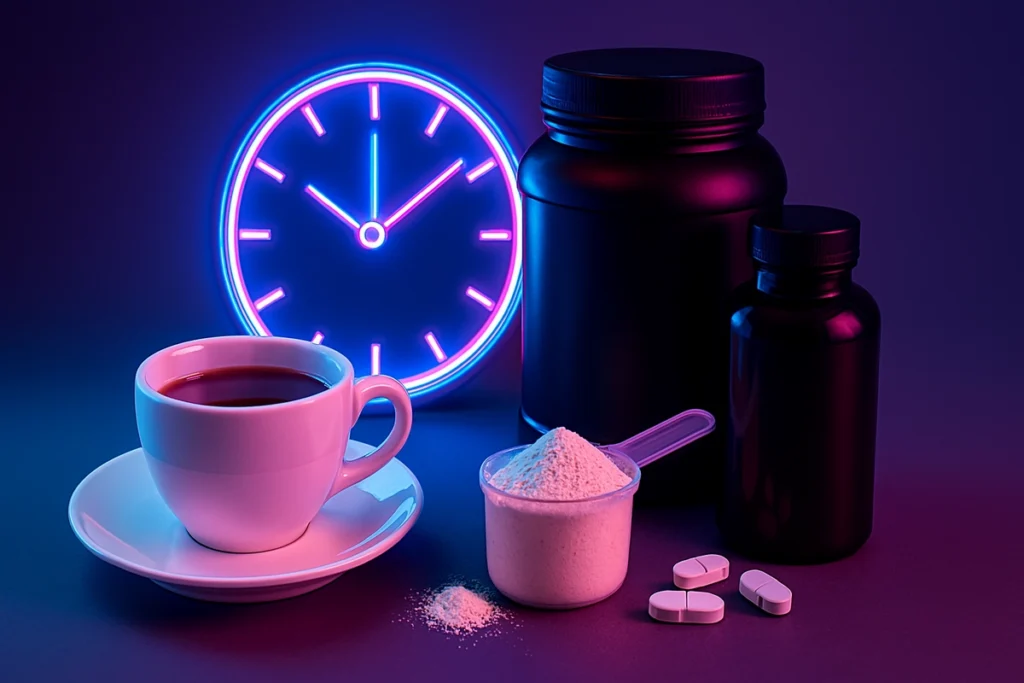
This is where caffeine shines. It typically peaks in your bloodstream 45 minutes after consumption. That’s why I recommend taking it 30 to 60 minutes before your session, depending on how fast your body processes it and what form you use.
💬 Story from Experience:
A client of mine, Alyssa from New Zealand, used to drink coffee during her warm-up because she assumed that’s when the energy boost would happen. She felt decent but not her best. We adjusted her routine — she drank her coffee 40 minutes before training instead — and within 10 days, she hit a personal best in Romanian deadlifts. She told me, “It was like my brain and body were finally in sync.”
Best Time of Day to Use Caffeine for Training
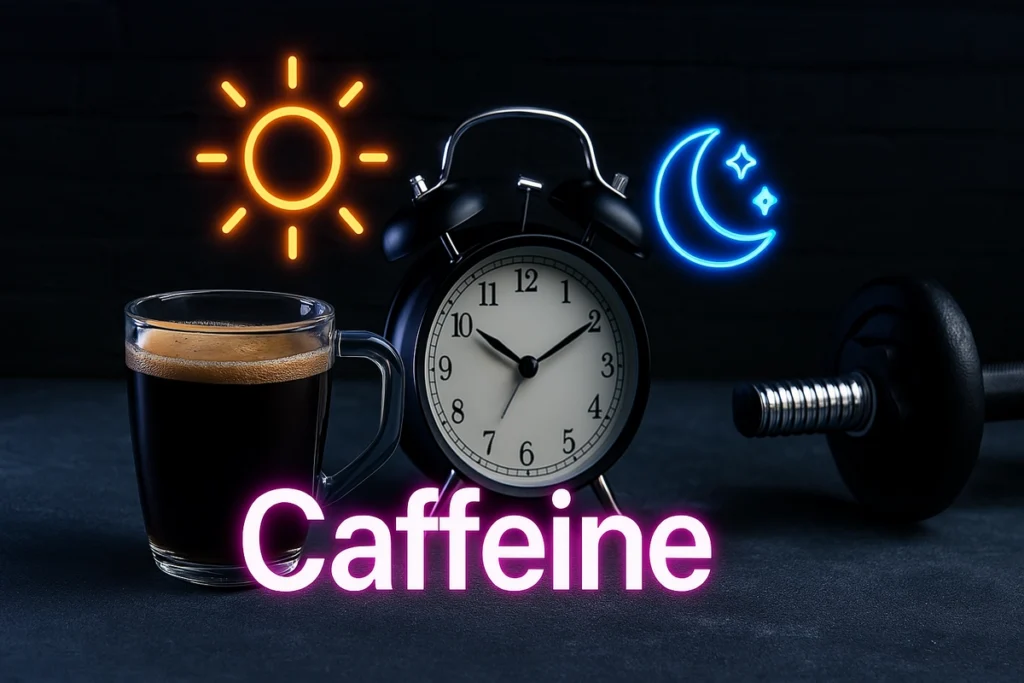
Caffeine is great — unless it messes with your sleep. If you train in the morning or early afternoon, you’re in the clear. But if your sessions start after 5 PM, think twice.
Caffeine’s half-life is 5 to 6 hours, which means half of it is still in your system at bedtime. Sleep suffers, and when sleep suffers, everything else falls apart — from recovery to fat loss to mood.
💬 Real Coaching Example:
Daniel from Berlin trained at 6 PM and used to take a full-scoop pre-workout. After a few weeks of poor sleep, plateaued lifts, and low recovery, we pulled the plug on his stimulant intake. We swapped in a stim-free formula, and after just one week, his sleep tracker showed deeper sleep and better HRV. That next Monday, he hit a new squat PR.
Common Mistakes When Using Caffeine
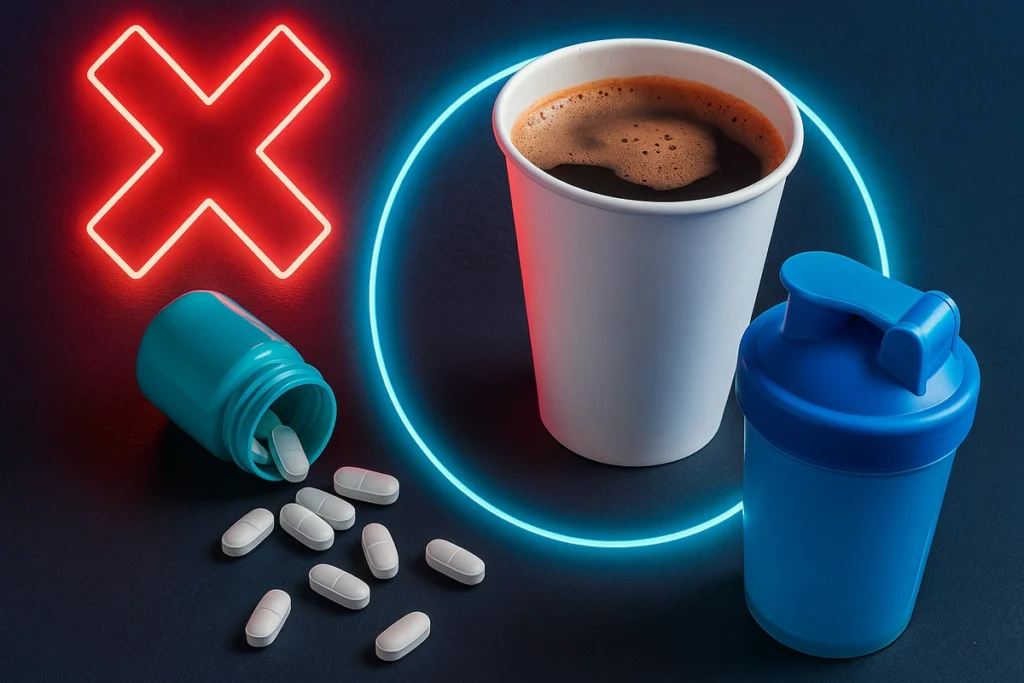
As powerful as caffeine is, misusing it can backfire — hard. Here are mistakes I’ve seen over and over:
1. Taking Too Much
More caffeine doesn’t equal more gains. Lucas from Toronto, one of my newer clients, made the rookie mistake of dry scooping two servings of a high-stim pre-workout. Ten minutes in, his heart was racing, he felt dizzy, and he had to leave the gym early. We scaled him back to 150 mg, and now he trains like a machine — without the side effects.
2. Using It Too Late in the Day
Evening caffeine leads to poor sleep. Poor sleep = poor recovery. Period.
3. Using Caffeine Daily Without Cycling
Tolerance builds quickly. I take a caffeine deload every 6 weeks — 7 to 10 days of zero caffeine. It resets my sensitivity and makes every scoop feel like magic again.
💬 Client Case:
Carlos from Brazil was relying on caffeine just to get through his sessions. I had him deload for 10 days — he wasn’t thrilled at first — but two weeks later, his energy was back and his strength was climbing again. He now schedules his caffeine resets like clockwork.
Natural vs. Supplement Caffeine – What Works Best?
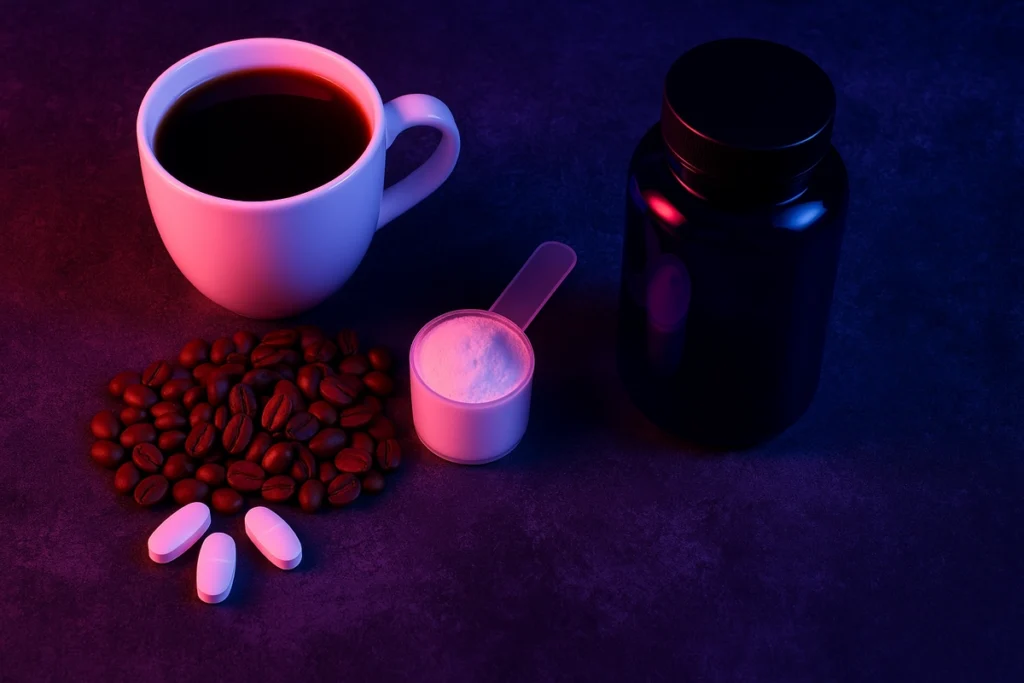
Caffeine isn’t just caffeine — how you take it matters.
Type | Speed | Control | Best For |
|---|---|---|---|
Coffee | Moderate | Low | Casual sessions, morning lifters |
Caffeine Pills | Fast | High | Beginners, precise dosing |
Pre-Workout | Fast | Medium | Lifters who want pump + energy combo |
I use pre-workout when I’m doing heavy compound days or intense hypertrophy blocks. On low-carb mornings or fasted cardio days, I go with black coffee and a banana — fast, cheap, and effective.
When Not to Take Caffeine Before a Workout
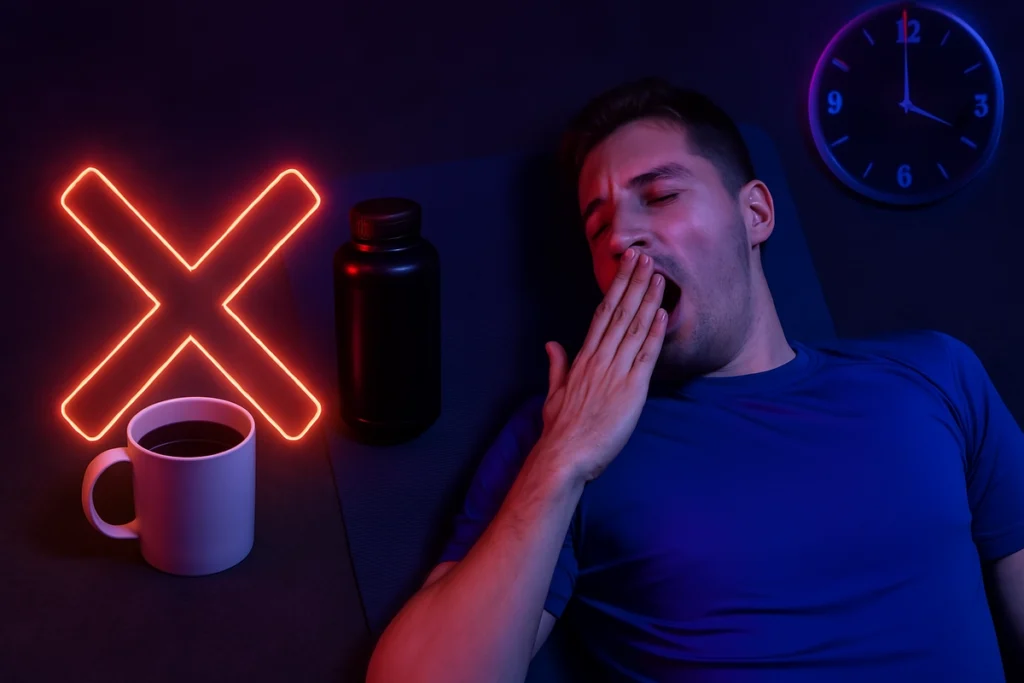
Caffeine isn’t for everyone or every situation. I tell clients to skip caffeine if:
- They’re already sleep-deprived
- They’re dealing with high blood pressure or anxiety
- It’s a light cardio, recovery, or mobility session
- They’re already on medication that affects heart rate
💬 Client Tip:
For clients in fat loss mode with poor sleep (which is common), I often replace caffeine with hydration, electrolytes, and a high-energy playlist. You’d be surprised how far that combo goes.
Final Thoughts – Maximize Caffeine, Maximize Gains
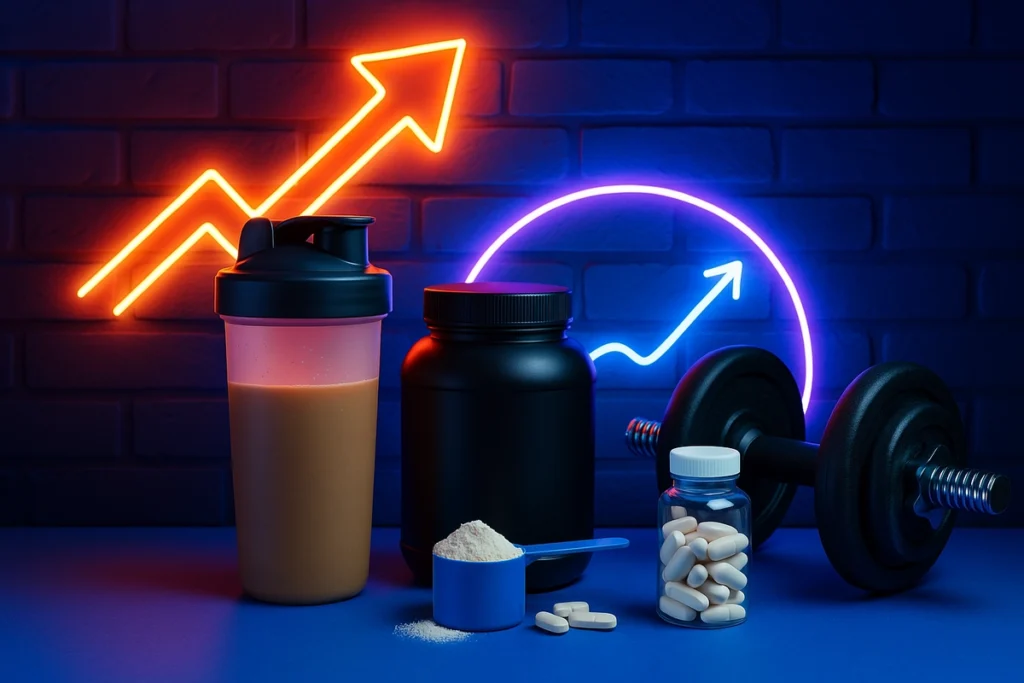
Caffeine is one of the most researched, affordable, and effective tools to boost performance — but like anything in fitness, it works best when used intelligently.
✅ Here’s how I coach it:
- Time it 30–60 minutes pre-workout
- Stick to 100–250 mg depending on your tolerance
- Avoid it late in the day
- Cycle it every 6–8 weeks
- Don’t rely on it to mask poor sleep or bad programming
If you treat caffeine like a strategic weapon, not a crutch, it can help you train harder, focus deeper, and maybe even set your next PR.
Takeaway from a Coach Who’s Been There
As someone who’s trained through groggy mornings, fasted cardio, late-night lifts, and everything in between — I can say with full confidence: caffeine is powerful, but timing is everything.
Whether it’s your first pre-workout or your fiftieth, use it with intention, and it’ll reward you every time.

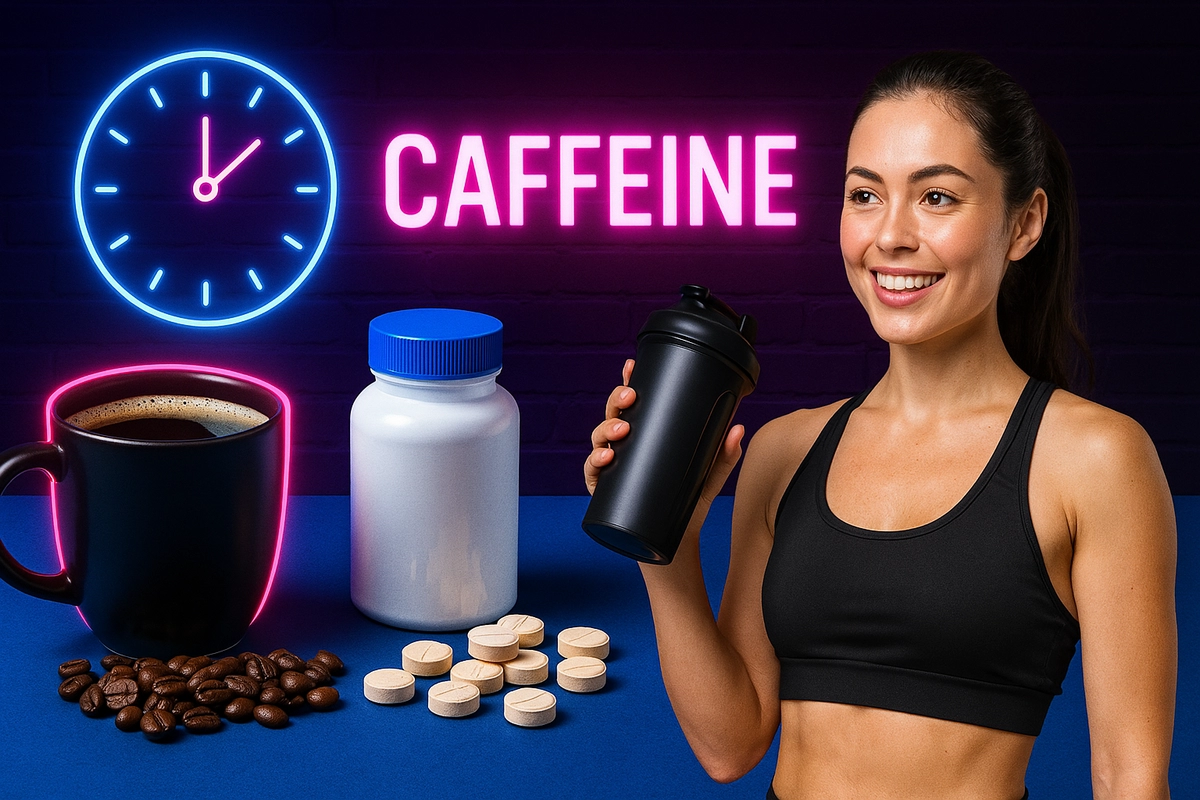

Leave a Reply